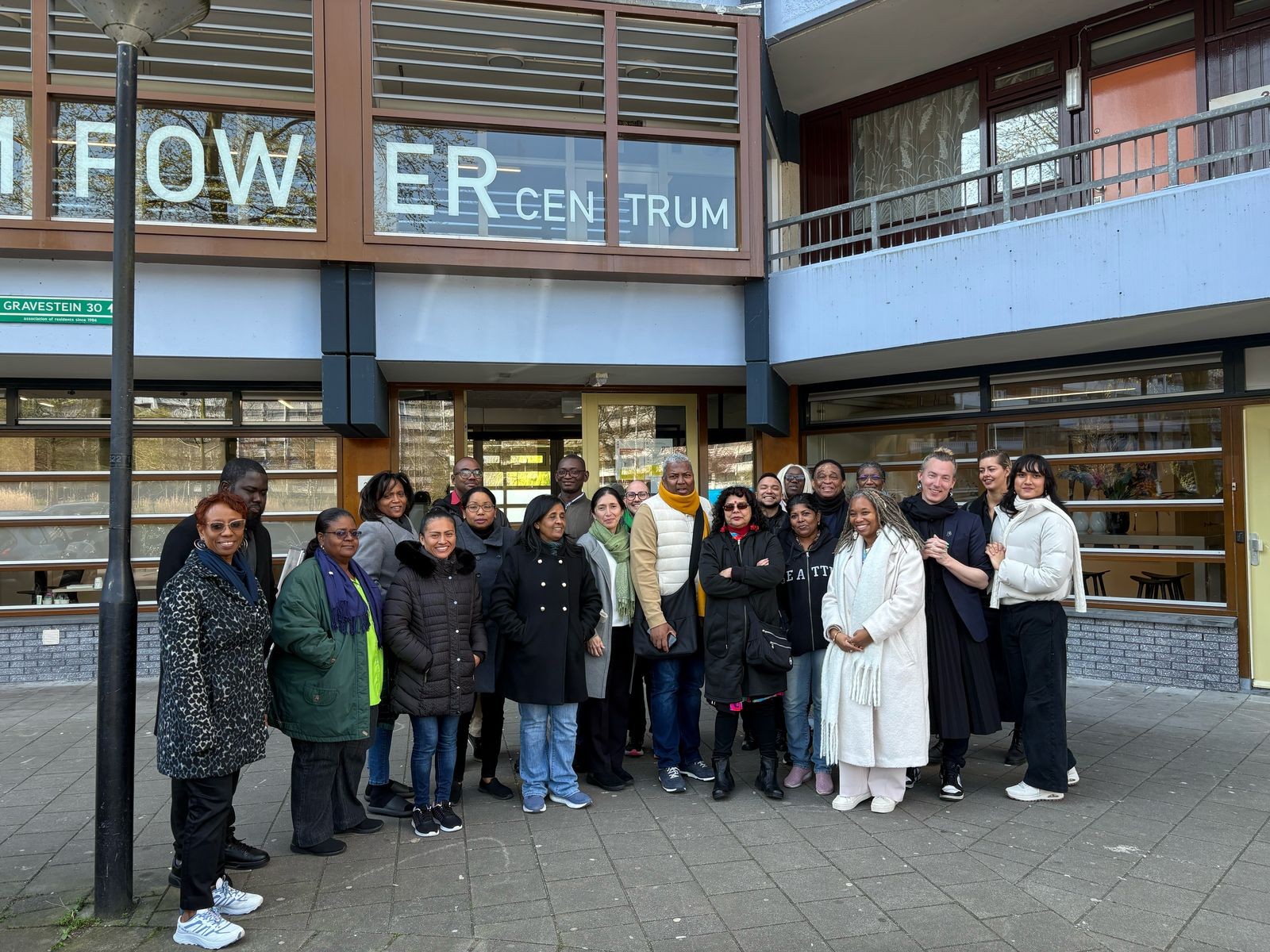
Caribbean and Amsterdam Public Health Experts Unite to Revolutionise HIV Prevention through Innovation, Shared Knowledge, and Collaboration
Tuesday 08 April 2025 – (PANCAP Coordinating Unit, CARICOM Secretariat), Georgetown, Guyana – Caribbean public health leaders have concluded a transformative South-to-South Learning Journey hosted by the Public Health Service of Amsterdam (GGD Amsterdam), The Netherlands, from 31 March to 4 April 2025. The initiative focused on advancing HIV prevention through innovative strategies and the integration of cutting-edge technologies into healthcare service delivery.
The week-long exchange convened Caribbean clinicians, policymakers, and community leaders who explored GGD Amsterdam’s comprehensive approach to HIV prevention. The programme covered topics such as Long-Acting Pre-exposure Prophylaxis (PrEP), Doxy PEP, Mpox response, and integrated care for ageing populations. Participants engaged in immersive workshops, site visits, and meaningful discussions with civil society organisations representing marginalised groups.
A highlight of the exchange was the daily vision board exercise, in which delegates identified national HIV prevention gaps and developed actionable work plans. These strategies, informed by host country practices and peer experiences, focused on scaling up testing, promoting community-led solutions, and increasing uptake of prevention tools such as PrEP through differentiated service delivery models.
Throughout the exchange, participants reflected on how the knowledge gained could be adapted to their local contexts. Particular interest was shown in motivational interviewing to enhance patient engagement and empowerment in HIV care. This technique transforms HIV care from a transactional process to a shared journey of trust and agency. Using digital tools to improve efficiency and privacy in STI clinics was another area where participants examined the many benefits of digital innovation in dismantling stigma at STI clinics.
The role of healthcare providers in addressing stigma and discrimination was also a key theme. Participants explored tools like the academic wheel of privilege to foster greater self-awareness and more inclusive care. But the most profound lessons unfolded beyond theory during site visits to communities of marginalised populations. These underscored the importance of patient-centred, rights-based services in creating safe and supportive environments—even within resource-limited settings.
Dr. Shanti Singh Anthony, Coordinator of Knowledge Management at the PANCAP Coordinating Unit (PCU), emphasised the exchange’s impact:
“This learning journey provided more than just knowledge transfer—it’s igniting change. The strategies we’ve seen in Amsterdam, from AI-driven outreach to community-led care, are not just innovative; they’re lifelines we can adapt to bridge gaps in the Caribbean. Our vision boards are now blueprints for action.”
Dr. Wendy Telgt Emanuelson, Director of the PCU, underscored the importance of integration and collaboration in driving the regional HIV response:
“Participants were reminded of the benefits of integrating social determinants of health, harm reduction, and low-threshold services to reach the most marginalised groups. Services are offered with dignity and confidentiality, ensuring all receive judgment-free support. The concept of a ‘Stigma-Free’ environment moved from theory to practice as participants observed how GGD designed systems that empower users. Peer support is embedded throughout service delivery. Clients aren’t just recipients; they are co-creators of solutions. This approach echoed PANCAP’s ongoing advocacy for rights-based programming, where communities most affected by HIV are engaged meaningfully in decision-making processes.”
PANCAP will provide tailored technical assistance to support the execution of country work plans, with formal follow-ups at three- and six-month intervals to monitor and evaluate progress. This exchange not only strengthened regional HIV prevention efforts but also established lasting partnerships between Caribbean and Dutch public health professionals.
PANCAP thanks The Global Fund, PAHO, GGD Amsterdam, and other key partners for supporting this dynamic knowledge-sharing initiative.
WHAT IS PANCAP?
PANCAP is a Caribbean regional partnership of governments, regional civil society organisations, regional institutions and organisations, bilateral and multilateral agencies and contributing donor partners established on 14 February 2001. PANCAP provides a structured and unified approach to the Caribbean’s response to the HIV epidemic, and coordinates the response through the Caribbean Regional Strategic Framework on HIV and AIDS to maximise efficient use of resources and increase impact, mobilise resources and build the capacity of partners.
What are the Global AIDS Strategy 2021–2026 targets and commitments?
If targets and commitments in the strategy are achieved:
- The number of people who newly acquire HIV will decrease from 1.7 million in 2019 to less than 370 000 by 2025
- The number of people dying from AIDS-related illnesses will decrease from 690 000 in 2019 to less than 250 000 in 2025.
- The goal of eliminating new HIV infections among children will see the number of new HIV infections drop from 150,000 in 2019 to less than 22,000 in 2025.
What are the 95-95-95 Targets for ending AIDS?
- 95% of People Living with HIV know their HIV status;
- 95% of people who know their status on treatment; and
- 95% of people on treatment with suppressed viral loads.
HELPFUL LINKS:
Global AIDS Strategy 2021–2026, End Inequalities, End AIDS
https://pancap.org/pancap-documents/global-aids-strategy-2021-2026-end-inequalities-end-aids/
Caribbean Regional Strategic Framework on HIV and AIDS (CRSF) 2019-2025
https://pancap.org/pancap-documents/caribbean-regional-strategic-framework-2019-2025/
